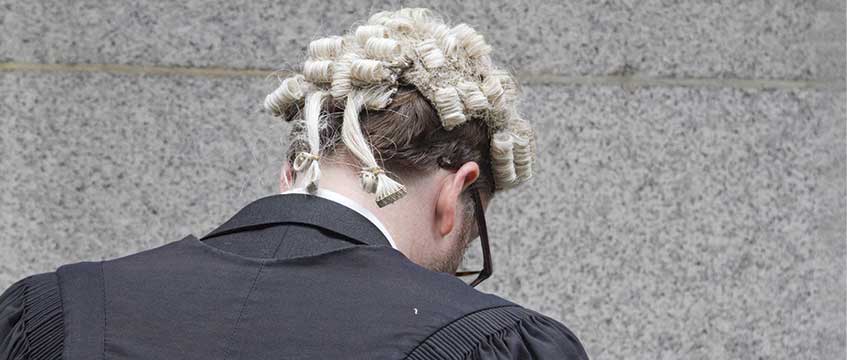Elizabeth Dwomoh analyses the Supreme Court’s judgment in an important case concerning the enforcement of absolute covenants.
Key point
- Landlords cannot license works that would breach an absolute covenant if, under the terms of a mutual enforceability covenant, another lessee, at their own cost, requests enforcement of the same
Under a mutual enforceability covenant, a landlord promises to impose similar covenants in the leases of every tenant in the building. A tenant, at his expense, can subsequently request that the landlord enforce those covenants in the face of a breach or anticipated breach. Can a landlord, without being in breach of covenant, grant a lessee a licence to carry out works which, but for the licence, would amount to a breach of an absolute covenant if another tenant has asked the landlord to enforce the same in accordance with the terms of a mutual enforceability covenant?
The answer to the above question is an important one in light of the prevalence of absolute mutual enforceability covenants and absolute covenants in long leases. The Supreme Court has provided a definitive answer in Duval v 11-13 Randolph Crescent Ltd [2020] UKSC 18; [2020] PLSCS 84.
The dispute
11-13 Randolph Crescent Ltd was the freehold landlord and the lessee-owned management company of a block of flats in Maida Vale, west London. Dr Julia Duval and Martha Winfield were both leaseholders of flats in the block.
All the leases in the block were drafted in substantially the same form. Clause 2.7 contained an absolute covenant prohibiting lessees from committing acts of waste or destruction to their demise, including cutting into any roofs, walls or ceilings. Clause 3.19 contained a mutual enforceability covenant under which the landlord covenanted to impose similar covenants on each lessee, including clause 2.7, and to enforce those covenants if a request was made by another tenant at their own expense.
In spring of 2015, Winfield applied to 11-13 Randolph Crescent Ltd for a licence to carry out works to her flat, which included the removal of part of a load-bearing wall at basement level. These works amounted to a breach of the absolute covenant contained in clause 2.7. The landlord was minded to grant the licence on Winfield obtaining adequate insurance. Duval objected. Relying on clause 3.19, she requested that the landlord enforce the absolute covenant.
The decision
In the county court, Deputy District Judge Chambers found that under clause 3.19 the landlord had no power to waive a lessee’s compliance with clause 2.7 without the prior consent of the other lessees in the block. This decision was subsequently reversed on appeal. In broad terms, Judge Parfitt held that the landlord could license works that would otherwise amount to a breach of the absolute covenant contained in clause 2.7. Further, once licensed, those works could not be the subject of enforcement action under the mutual enforceability covenant contained in clause 3.19. Duval appealed.
In a unanimous decision ([2018] EWCA Civ 2298; [2018] PLSCS 177), the Court of Appeal determined that, in the face of a threatened breach of clause 2.7, Duval was entitled to request her landlord enforce the absolute covenant. Clause 3.19 would be devoid of any practical or commercial content if the landlord had “carte blanche” to vary or modify the absolute covenant or to authorise a breach of it. The landlord appealed.
In agreement with the Court of Appeal, the Supreme Court observed clause 3.19 did not expressly prohibit the landlord from granting a licence to carry out structural work falling within the scope of clause 2.7. Nevertheless, to ensure clause 3.19 retained practical and commercial coherence, such a term had to be implied.
Clause 3.19 served an important protective function. On the provision of security, Duval was entitled to require the landlord to enforce the absolute covenant contained in clause 2.7. The landlord simply could not put it out of its power to enforce the same by licensing structural works in breach of covenant. Further, the valuable right contained in clause 3.19 could not be defeated by the landlord simply acting first in licensing works before another lessee could request enforcement on providing security.
Unintended consequences?
The Supreme Court was very careful to distinguish between clauses which allowed for routine repairs, improvements and alterations, which were permissible subject to landlord consent, and to clauses such as 2.7, which were directed to acts of waste or destruction. Such works were intrinsically damaging or destructive to a building and a landlord could not authorise such works without the consent of the other lessees, as it would constitute a clear derogation from grant.
The Supreme Court stressed that it was reasonable to suppose that landlords would authorise routine repairs, improvements and alterations that did not amount to acts of waste or destruction without the consent of other lessees. This may prove to be an optimistic supposition. Landlords may become increasingly unlikely to license reasonable or routine works or acts that would amount to a breach of an absolute covenant if there is a mutual enforceability covenant in existence. Alternatively, landlords may require lessees to indemnify them before granting a licence authorising such works or acts.
This decision is likely to have a significant impact on how landlords manage their block of flats in the future.
Elizabeth Dwomoh is a barrister at Lamb Chambers
For more on Duval, listen to our On the Case podcast








